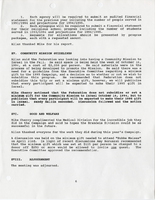Search the Special Collections and Archives Portal
Search Results
Las Vegas High School Reunion Biography Collection
Identifier
MS-01021
Abstract
The Las Vegas High School Reunion Biography Collection (1983) consists of class rosters, biographies of graduates, and photocopies of original programs from the four graduating classes of 1933 to 1936. The information specific to each year is compiled into its own handmade scrapbook. The materials were created for the 50th reunion of the class of 1933, and the event also included the classes of 1934, 1935, and 1936.
Archival Collection
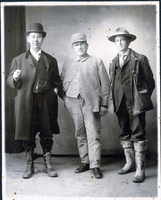
Davis, Shoemaker, and Hubbard: photographic print
Date
1900 (year approximate) to 1915 (year approximate)
Archival Collection
Description
Lincoln Davis from Chicago (left), R.J. Shoemaker from Rochester, N.Y. (center), and J.R. Hubbard a mining engineer from Nevada(?). Mohawk Ledge Mining Company, Goldfield, Nev. Inscription on back of the image reads "I worked for Davis & Shoemaker in office and later at mine after panic hit. This was last work in Goldfield. Shoemaker formerly owned & operated a correspondence school at Rochester NY."
Image
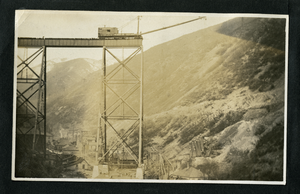
Photograph from Ferron-Bracken Collection photograph album 2, page 104
Date
1905 (year approximate) to 1935 (year approximate)
Archival Collection
Image
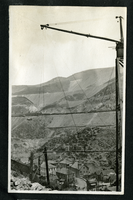
Photograph from Ferron-Bracken Collection photograph album 2, page 104
Date
1905 (year approximate) to 1935 (year approximate)
Archival Collection
Image
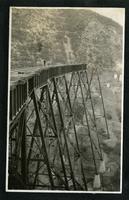
Photograph from Ferron-Bracken Collection photograph album 2, page 104
Date
1905 (year approximate) to 1935 (year approximate)
Archival Collection
Image
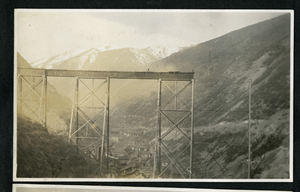
Photograph from Ferron-Bracken Collection photograph album 2, page 104
Date
1905 (year approximate) to 1935 (year approximate)
Archival Collection
Image
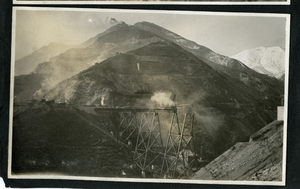
Photograph from Ferron-Bracken Collection photograph album 2, page 104
Date
1905 (year approximate) to 1935 (year approximate)
Archival Collection
Image
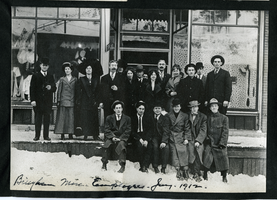
Photograph from Ferron-Bracken Collection photograph album 2, page 104
Date
1905 (year approximate) to 1935 (year approximate)
Archival Collection
Image
Pagination
Refine my results
Content Type
Creator or Contributor
Subject
Archival Collection
Digital Project
Resource Type
Year
Material Type
Place
Language
Records Classification


